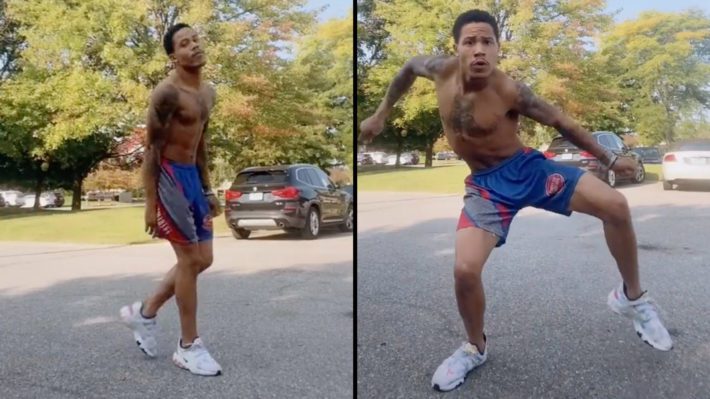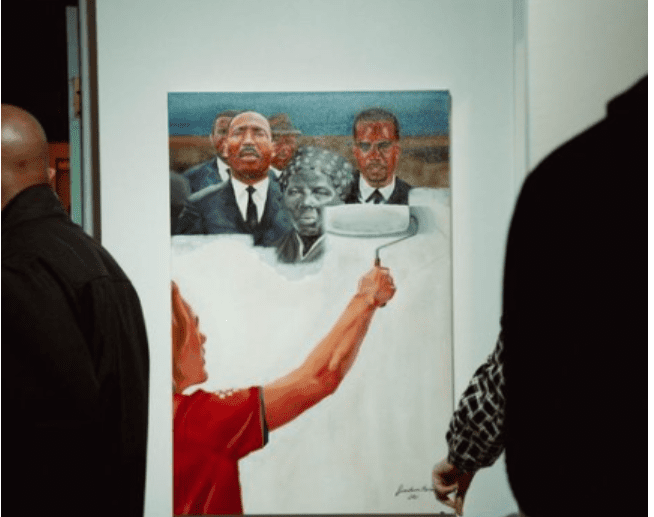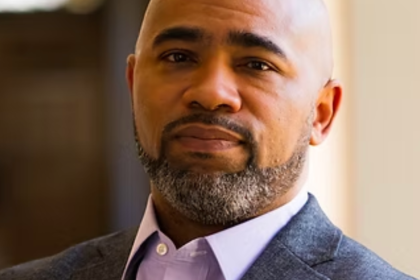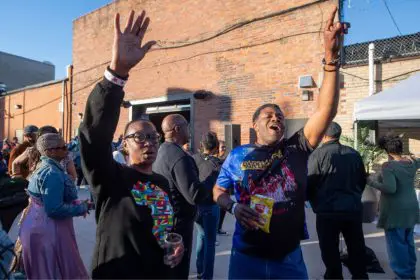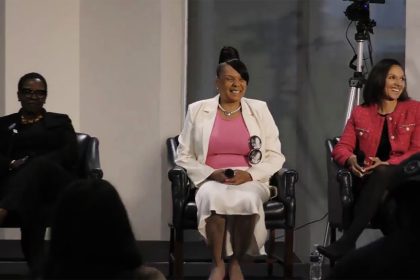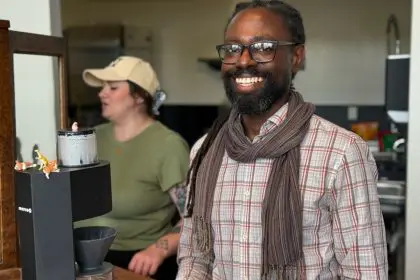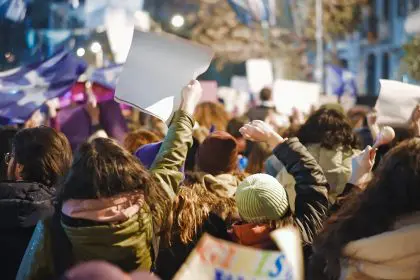Photo Credit: Raquelle Harris for Steed Media
“No one, regardless of where they’re from, deserves to be trafficked.” -Alice Jay, author and human trafficking survivor
This was one of many profound statements heard during the S.H.A.U.N. Foundation for Girls’ inaugural event, The Empowered Girl: How NOT to be a Victim of Human Trafficking. The new non-profit launched by Emmy-Award winning media maven and self-proclaimed Motown gal, Shaun Robinson, presented the free event in partnership with Ford Motor Company last weekend at Detroit’s Charles H. Wright Museum for African American History. Held in conjunction with the African World Festival, it featured a panel discussion filled with a diverse group of women focused on a common goal: educating young girls and the community about the egregious act of human trafficking. Robinson facilitated an in-depth conversation between the audience and the panel comprised of author and survivor, Joyce Haskett; author and survivor, Alice Jay; FBI-Detroit, victims’ specialist, Nicole Gee; activist and survivor, Deborah Monroe; Alternatives For Girls’ Outreach Director Deena Policicchio; Alternatives for Girls Chief Operating Officer Celia Thomas; Detroit City Councilwoman Mary Sheffield and Third Circuit Court Judge Deborah Thomas. The conversation was candid, informative, heartbreaking and inspiring; participants shared tears along with laughter.
Human trafficking, especially for sexual purposes, is a social ill that affects females from various backgrounds. “… human trafficking isn’t just the woman you see on the corner … there are girls who go to school … they turn tricks after school and come home, and do their homework … they’re girls that you know,” explained Robinson. Young girls are often coerced and tricked into a lifestyle that takes them years to escape. Traffickers stalk potential victims at malls, schools, transportation hubs and via the internet. Victim are also forced to lure in their peers.
A recent report revealed that Michigan is number two in the country for human trafficking. And it’s not exclusive to major cities; Jay and Monroe were both “recruited” from smaller areas. The survivors on the panel reported that they experienced abuse and neglect during their childhoods; thus, no one searched for them. Jay tearfully recounted how, at the age of 11, she was kidnapped and raped by several men. She was subsequently prostituted all over the country. Haskett’s love for her trafficker eventually faded into hate, resulting in her spending 17 years in prison for his murder. She was considered a “commodity,” expected to earn between $500-$1K per night.
The panel provided sage advice and tips about the dynamics of human trafficking and how to detect and prevent it. Issues with self-esteem, abandonment, instability and lack of love make girls vulnerable. An advocate for alternative sentencing, Judge Thomas spoke about the women who come before her court due to crimes related to human trafficking. Realizing that incarceration isn’t the answer, she has created and sought out treatment programs for these women. She called for the community to beware of the stigma that victims of human trafficking suffer from and challenged people to stop “labeling victims as criminals.”
Offering an additional perspective, FBI victims’ specialist Gee expressed frustration with laws that allow for non-delinquent victims to return to the streets after temporary detainment. Councilwoman Sheffield pointed out that many teen girls “want the fast life … they want the purses, they want the clothes, they want the shoes” that they see in hip-hop culture. She proposed that “we reach back and help one another” by mentoring young women about their worth.
Organizations like Alternatives for Girls are essential for populations that are at risk. They provide critical services to girls and women including safe shelter, street outreach and educational support, vocational guidance, mentoring, prevention activities and counseling. Thomas and Policicchio have encountered countless girls and women who learned to barter their bodies for love and survival. The S.H.A.U.N. Foundation for Girls presented a $5K grant to Alternatives for Girls in support of their ongoing efforts.
“It doesn’t matter how the story starts … it’s how it ends.” -Joyce Haskett, author and human trafficking survivor,
Each of the survivors is an example of light that can arise from darkness. Their poignant stories will resonate indefinitely. In addition to being published authors, Haskett is a therapist and Jay has established a support group called Sister Survivors. In 2014, Monroe was appointed by Gov. Rick Snyder to Michigan’s Human Trafficking Commission. An uplifting performance by singer/songwriter Malaya Watson closed the event with a positive vibe.
The S.H.A.U.N. Foundation for Girls is a grant-making, 501(c)3 nonprofit dedicated to improving the quality of life for girls and young women. It provides support for local, grass-roots charities that are doing work in one of five key areas: (S)TEM, (H)EALTH, (A)RTS, (U)NITY and (N)NEIGHBORHOODS. More information can be found at www.ShaunFoundationforGirls.org.
If you suspect that a young lady in your community is a victim of human trafficking or for more information, contact the National Human Trafficking Center at 1-888-373-7888.















